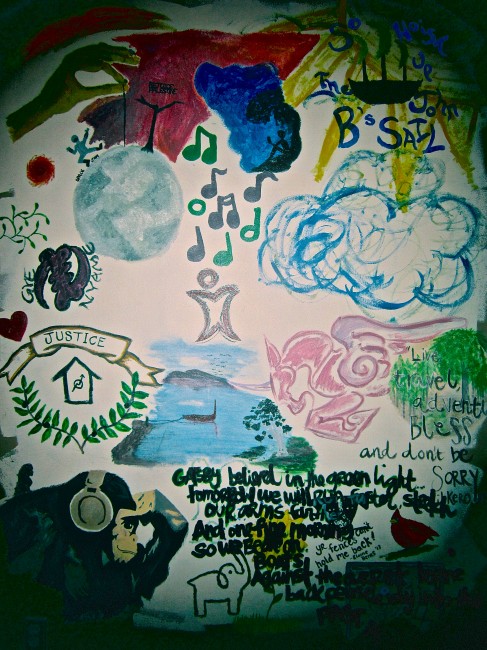VDS Feature: Gabriel Horton, BA’11, MDiv3

These days, I leave too many Divinity School discussions in exasperation. My blood pressure can’t take it. Just the other day, a dispute about climate change nearly lost me a friendship. I should eat more spinach, or perhaps dark chocolate, to help decrease anxiety.
I suppose I could learn also to accept that we all see the world differently and through a particular lens. But that is not the nature of ideology: Ideology longs only to prove its right-ness or suffer the affliction of everyone’s wrong-ness.
Vanderbilt Divinity School, in many ways, provides the perfect battleground for a great clash of ideologies. The champions of queer theory cross swords with reformed theologians. The trebuchets of process theology burst apart the carefully erected walls of the systematics. Womanists break rank with the feminists only to realign against the dreaded Barthians, and so it goes.
The conflict, of course, is essential as we grow into our vocations. Like rough diamonds girdled against one another, our conflicting ideas continuously shape and re-shape the beliefs to which we have clung for so long. I wonder, though: How far do the academic debates take us? At what point does the seminar table cease to be useful, merely reinforcing preconceived ideas?
I ask because, as I read the great movers and shakers of culture and theology, I am impressed not by the ferocity of their argument but by the poetry of it. These thinkers craft a lifetime of experiences, ideas and relationships into a work of art that expresses more truth than ten thousand dissertations. I am talking about the Zora Neale Hurstons and the Dr. Kings; the Annie Dillards and the William Faulkners. Yes, their poetry is political but only insofar as it unearths a truth that transcends any single ideology.
I first read The Color Purple as an undergraduate. To this day, no theological or political treatise has ever matched the potency of Shug Avery’s formidable words, “I think it pisses God off if you walk by the color purple in a field somewhere and don’t notice it.” There is beauty in her story and in her words, and no matter our ideology, we all recognize beauty when we see it. Shug’s wisdom could never be reduced to an academic argument, for its truth eludes the meddling hands of a politician or theologian.
By all means, let us continue to debate and theologize and grow; it is the only way we will ever unearth deeper truths. But let our conversations be always in the service of beauty. Let us transform knowledge into art. Let us know the songwriters, the painters, and the storytellers for what they are: Voices of truth in a world yearning for something beautiful.
It would certainly help keep my blood pressure down.
Gabriel Horton, BA’11, MDiv3